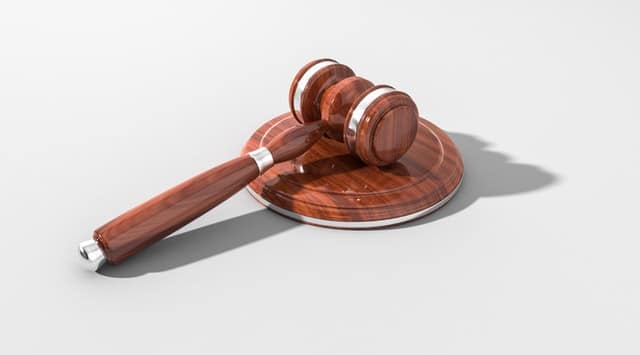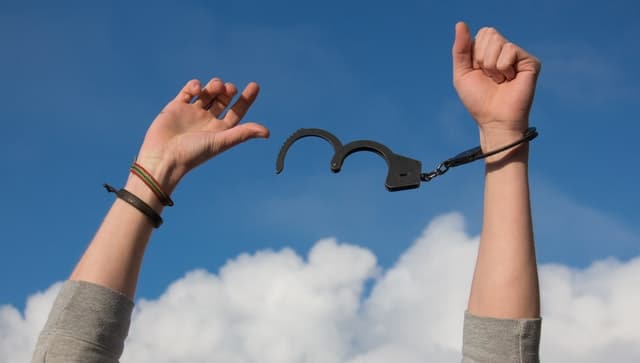Bail Bond Amounts Must Be Set At a Reasonable Rate
- Age
- Current charges
- Criminal history
- Prior record of failing to appear in court
- Perceived threat or danger to victim, family, and other people
- Record of substance and drug abuse
- Record of threats such as suicide threats or threatening to leave the state or country
The charges being held against a person can make a difference in the bail cost. If a person has a felony, the cost can be significantly higher for a felony versus a misdemeanor. In fact, the charges for a felony can be 5-10 times higher in some areas, especially if the person is a flight risk. Capital crimes like murder typically do not have bail set due to the risk to others if they were released. Anyone that has been previously convicted of a capital crime, and have been arrested again after serving time can often find themselves without a set bail amount.
The Bail is Set by a Bail Schedule or by the County Jail, a Judge, or a Magistrate
Depending upon which county you are in, there could be a bail schedule already set for the crime. Utah Courts frequently updates their website with new information about bail schedules here. If the person is not a repeat offender, it is typical for the courts to use the bail schedule to set the rate. A magistrate can be used to set the bail. Magistrates are just below the judge, and they are responsible for setting the initial bail per the county guidelines. Magistrates are normally responsible for setting the rate for misdemeanors. A magistrate will also be able to push back on the bail amount set if it has been deemed an unreasonable amount. However, you will need to set up a meeting with the magistrate to discuss the bail amount. A judge can set a bail amount, which they typically do for significant felonies. The judge will be involved if the defendant claims the initial bail amount set was unreasonable. An official complaint needs to be filed if the bail has been deemed unreasonable.
Can Bail Amounts Be Reduced?
Is it possible for a bail amount to be reduced? Depending upon the judge and the charges, there are some circumstances when the judge will lower the bail amount based on certain terms. Some of the terms they require include:
- Electronic monitoring device – County officials may have clear expectations related to an electronic monitoring device, and will allow defendants to be out on bail so long as they wear the device. Geo fencing is used to make sure the defendant will stay within certain boundaries, and they adhered to the specific monitoring requirements.
- Drug Vehicular Locking System – If the defendant was arrested for drunk driving, it is common for the courts to consider using a alcohol/drug vehicular locking system to keep the public safe. The costs are paid for by the defendant, and the system will ignition lock and require a person to breathe into the device in order to allow the ignition to be unlocked.
- Bond Reduction Letter – A bond reduction letter can be filed by a loved one or friend of the defendant with the judge to try and reduce the bail amount. It is imperative to make the letter clear and it should convey emotion to the judge. It is important to construct the letter in the best format found here in order to try and convince the judge why the person deserves a lower bail amount.
- House Arrest – Many defendants offer house arrest in exchange for a lower bond. The house arrest option will require supervision and it does limit travel, and other stipulations such as check-ins from law enforcement.
- Curfew – Like house arrest, the defendant will need to adhere to a curfew. Curfew’s are set up to reduce risk as many crimes occur in the later evenings and nighttime hours.
- Drug Testing and Rehab – There are some defendants that will consent to drug testing and rehab in order to have a lower bail. The costs must be paid for by the defendant. The drug test will be at random, and the defendant must agree to the courts terms. Failure to follow through with the rehab work can lead to re-arrest, with a higher bail amount set.
Bounty Hunters Can Come After a Defendant Who Skips Court
When it comes to court dates, it is important to always appear! It is vital to show up to those court dates as you could have a warrant issued for your arrest. Bail bondsmen will come after you to turn you back into the jail if you do skip court. Defendants who think they can run are often caught, and their bail amounts are increased, or revoked. Unlike police officers, bail bondsmen do not need a warrant to enter your home, and they can cross state lines to find the person who skipped their court appearance.
Collateral Can Be Used for Bail Bond Companies
If you do not have access to the funds needed to bail yourself or a loved one out of jail, talk to a Ogden bail bondsmen. AAA Bail Bonds can work with you to find the best way to make sure you can afford the bail. Most people do not have access to thousands of dollars in cash, but collateral can be used to secure the bond. Some common forms of collateral include cars, real estate, jewelry, stocks and bonds, and other valuables.
If you or someone you care about has been arrested, contact AAA Bail Bonds in Utah. Our experts are here to provide you with fair and reasonable bail bonds to help you get your loved one out of jail quickly. Our goal is not only to help you get your loved one back home, but to keep you from becoming bankrupt due to the high costs of bail. Our experts are here to help and support you every step of the way. Contact our office to find out what options are available for your situation.




Leave a Reply